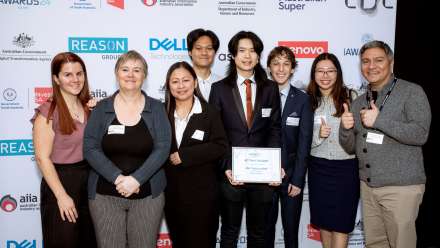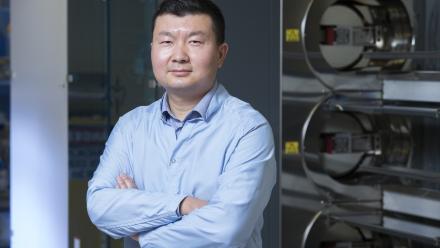ANU staff win Outstanding Engagement Award
Partners are critical in translating the capability of research discovery at ANU by helping build bridges between academics and their audiences.
Last month, three ANU staff members, Karen Jackson, Lorena (Lori) Sciusco and Sejul Malde, won the Outstanding Engagement Approach Award for their case study on the developing ANU Strategic Partnering Initiative (SPI) at the University Industry Innovation Network (UIIN) Conference in Amsterdam.
Conceived during the first lockdown of 2020, the SPI aims to democratise research partnership building by supporting and recognising that strategic partnerships exist anywhere in the organisation.
When asked about the significance of their project, Karen and Lori highlighted how establishing reciprocal partnerships is the key to effectively communicating research.
"Partners are critical in translating the capability of research discovery at ANU by helping build bridges between academics and their audiences," Lori says.
The team created a set of criteria for successful strategic partnering at ANU, testing with academic staff, prospective and current partners to map out their objectives and methodologies for getting the most out of a relationship.
They also developed tools to establish stronger partnership foundations, such as articulating the values and culture of partnering at ANU to more easily attract potential partners as well as featuring a roadmap to support tactical conversations.
Lastly, the team created incremental measures of success for strategic partnering over the next five years.
This unique combination of trust, criteria, tools and targets aims to ultimately build a strong foundation and culture for accelerating partnering success.
To date, the SPI has built trust and motivation for contributing academic and professional staff by establishing and addressing their needs. Trials of tools have also helped accelerate a diversity of partnership models from different discipline areas with new partners.
By strategically aligning the goals of academics in external partnering, the desired impact will be a recognised and valued uptake of research results across the diverse discipline base at ANU in a diverse range of sectors, generating societal and economic benefit.
Through developing the SPI, the team has also found a lack of visibility and communication in current partnering work.
Moving forward, the team is now putting together a portfolio with academics they are engaged with to highlight their work - and by doing so - bring more visibility to our University's contemporary research.
The team acknowledges that collaborating with academics is not a one-size-fits-all approach as academics are at different points in their careers, and professionals need the right tools and resources to support them. The team is working to provide a program that accommodates the needs of academics at all levels.
Another key takeaway for the group has been the importance of ANU differentiating itself within the context of external engagement.
"Through this initiative, we are looking to respond to the competitive strengths of ANU," Karen says.
"ANU has a distinct history and look, including an excellent base in the humanities and social sciences. We are working to reflect the diversity of our University's research."
Although three people presented at the UIIN conference, Karen and Lori both emphasise that the SPI is a massive, collaborative effort that involved a whole host of people.
"This is a project that is much larger than just three individuals. We are a group of people who want to work across the obstacles that are currently in place and establish new network-or mission-based partnerships from a strategic partnering base."


